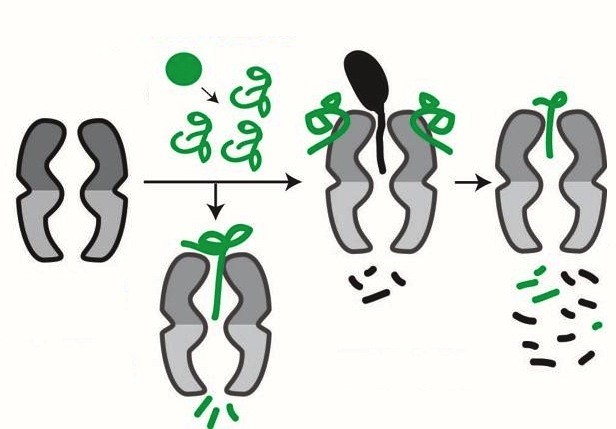Microbial Temper Tantrums
March 22, 2014
In stressful conditions, cells must prevent the initiation of replication and shift their priorities to protective functions. In other words: they must stop division and growth. Experiments in bacteria at the University of Massachusetts Amherst have uncovered the mechanism that translates stress into blocked cell growth. According to molecular biologist Peter Chien stressful conditions causes proteins to be bent out of shape. “You might think of this as microbial temper tantrums. Bacteria deal with stress by destroying proteins. Specifically, we’ve shown that certain kinds of bacteria respond to high temperatures by destroying proteins needed for DNA replication. Therefore, they stop growing.”
The signal for this destruction turned out to be the buildup of proteins that were misfolded because of the stress. Bacteria contain a large variety of differently shaped proteins that help cells do all the chemical reactions needed for life. Stressful conditions cause some proteins to be misfolded and stop working, stopping growth until the cell copes with the stress. Until these experiments scientists did not fully understand the molecular mechanisms that cells use to transduce information about environmental conditions to their replication machinery. Now the experiments conducted at the lab have shown that in the bacteria Caulobacter, when a particular enzyme, Lon protease, encounters too many misfolded proteins, it starts destroying the perfectly fine protein DnaA, that normally starts the growth process. When DnaA is destroyed, cells stop growing, allowing them to respond quickly to stressful conditions. Chien: “Stress and protein misfolding are a universal part of life, so understanding how simple bacteria deal with this kind of stress will help us understand how our cells do as well.”
The question is how much stress we allow ourselves and the environment to experience before we decide to shrink.